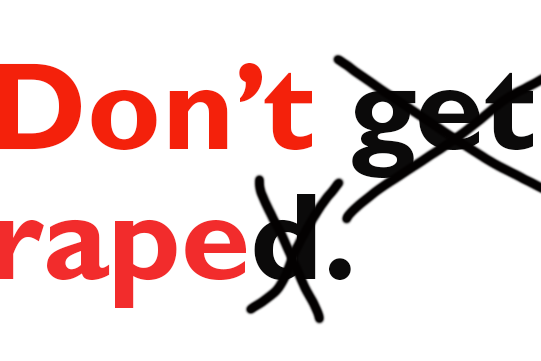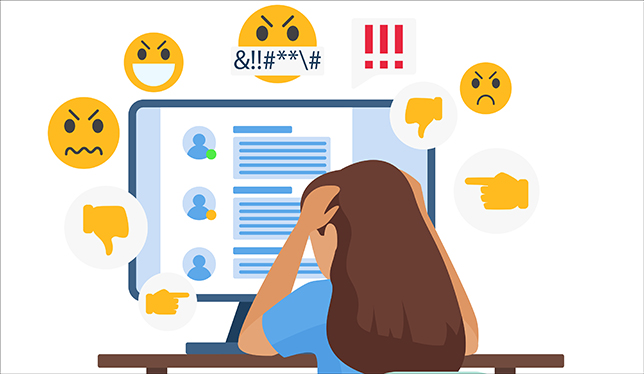How Rape Culture Thrives in Everyday Life
When we hear the word rape, most of us imagine a violent crime happening in a dark alley. But what if I told you that rape culture doesn’t just exist in those extreme cases, it thrives quietly in our everyday lives? From jokes to double standards, from media portrayals to casual comments, rape culture surrounds us like background noise. We may not always notice it, but it shapes how people think, behave, and even justify harmful actions.
In this article, we’ll unpack what rape culture really means, how it shows up in subtle and not-so-subtle ways, and why it matters that we talk about it. More importantly, we’ll explore how each of us can take small but powerful steps to challenge it.
What is Rape Culture?
Rape culture is a social environment where sexual violence is normalized, excused, or even encouraged through attitudes, behaviors, and media. It’s not just about physical acts of violence, it’s about a mindset that sees harassment, coercion, and assault as “normal” or “not a big deal.”
Think of it like pollution. Even if you don’t see the smoke, you’re still breathing it in every day.
Why the Term “Culture” Matters

Why call it a culture? Because it’s bigger than one person’s actions. It’s about a collective atmosphere shaped by beliefs, jokes, stereotypes, and media portrayals. Culture makes harmful behaviors seem “acceptable” or “natural,” which is exactly why they persist.
Everyday Examples of Rape Culture

Rape culture isn’t just found in crime reports—it’s in everyday conversations. Some examples include:
-
“Boys will be boys” used to excuse bad behavior.
-
Comments on what women wear, as if clothing invites harassment.
-
Pressure on men to always be dominant or sexually aggressive.
These moments may feel small, but together they create an environment where sexual violence feels less shocking.
The Role of Media in Normalizing Rape Culture

Movies, TV shows, music, and even advertisements often romanticize stalking, persistence after rejection, or portray women as objects. How many films have we seen where a man refuses to take “no” for an answer and the story rewards him with love?
Media teaches us what’s “normal,” and when it downplays consent, it shapes real-life expectations.
How Language Perpetuates Harm

Words matter. When people say someone was “asking for it” or when media headlines describe rape as “sex scandal,” they dilute the seriousness of the crime. Even common phrases like “man up” or “don’t be a tease” reinforce harmful gender roles that feed into rape culture.
Victim-Blaming: The Oldest Excuse

Victim-blaming is one of the strongest fuels of rape culture. Questions like:
-
“What were you wearing?”
-
“Why were you drinking?”
-
“Why didn’t you fight back?”
These shift responsibility away from the attacker and onto the victim. This not only silences survivors but also emboldens perpetrators.
Consent Misunderstood

Consent isn’t a gray area, it’s either freely given or it’s not there at all. Yet, society often muddies the waters by suggesting that silence equals consent, or that being in a relationship means automatic permission.
We need to think of consent like a doorbell: just because you rang it once doesn’t mean you can walk in forever.
Gender Stereotypes and Power

Rape culture is tied to rigid gender roles:
-
Men are taught to be aggressive, dominant, and unemotional.
-
Women are expected to be submissive, accommodating, and responsible for preventing men’s actions.
These stereotypes create an imbalance of power that makes sexual violence more likely and more easily excused.
Humor and Jokes: Why It’s Not “Just a Joke”

Rape jokes are often brushed off as harmless humor. But jokes are powerful, they reveal what a culture is comfortable laughing about. When rape becomes a punchline, it minimizes the trauma of survivors and normalizes violence.
Imagine being a survivor in a room where people laugh at such jokes, suddenly, silence feels safer than speaking out.
Schools and the Silence Around Sex Education

Many schools either skip sex education or focus only on biology. Rarely do they teach about consent, boundaries, and respect. This silence leaves young people learning from peers, media, or pornography, all of which can give distorted ideas about relationships.
How Workplaces Reinforce Rape Culture

From inappropriate comments to serious harassment, workplaces often mirror the broader culture. Sometimes, people who report harassment are punished more than the harasser. When companies protect reputations over people, they reinforce the idea that harmful behavior is acceptable.
Online Spaces: A Breeding Ground for Harassment

The internet can feel like a free-for-all. Social media platforms, gaming communities, and chat rooms often normalize harassment, stalking, and threats. Anonymous accounts embolden people to say things they might never say face-to-face.
This digital harassment is not “virtual”, it has very real emotional and psychological consequences.
The Hidden Emotional Impact

Living in a culture where jokes, media, and conversations normalize sexual violence can create constant fear and anxiety, especially for women and marginalized groups. Survivors often feel isolated, doubted, or ashamed.
The invisible toll of rape culture is heavy, even for those who’ve never experienced assault directly.
Challenging Rape Culture at the Personal Level

Change doesn’t just happen in courtrooms or laws, it starts in daily life. Some steps we can take include:
-
Speaking up when we hear harmful jokes.
-
Teaching children about consent early.
-
Supporting survivors without judgment.
-
Reflecting on our own language and biases.
Every small act of resistance chips away at the culture that sustains violence.
Building a Society Beyond Rape Culture

A world beyond rape culture is one where respect, equality, and safety are non-negotiable. It means rethinking the stories we tell, the jokes we laugh at, and the excuses we make.
This isn’t just about preventing crime, it’s about creating a culture where everyone can live without fear.
Rape culture thrives not only in extreme acts of violence but also in the everyday comments, jokes, and attitudes we often ignore. By recognizing it, naming it, and challenging it, we take away its power.
Change begins with awareness, but it doesn’t end there. It requires courage, compassion, and commitment from all of us. Because at the end of the day, the culture we allow to thrive is the culture we live in—and we deserve better.